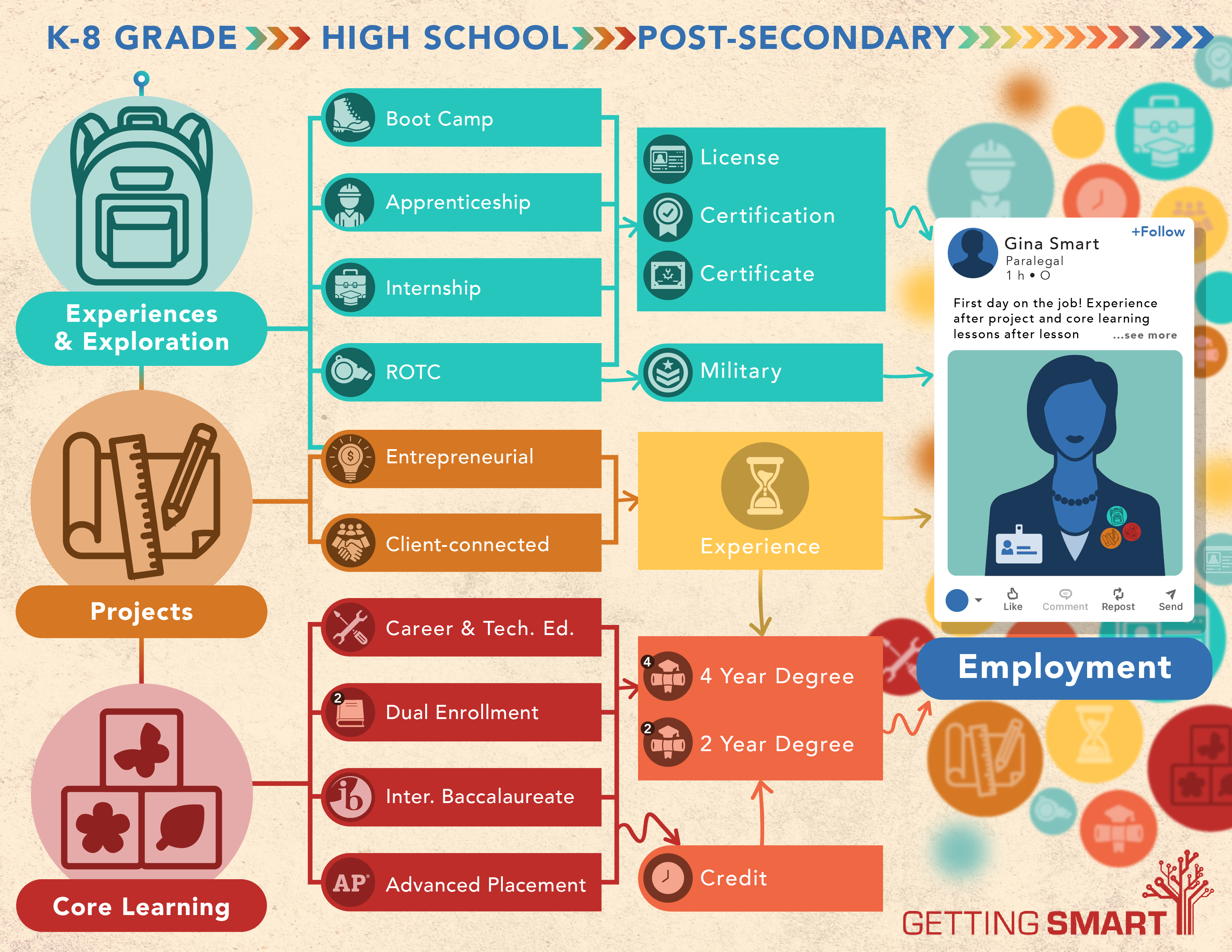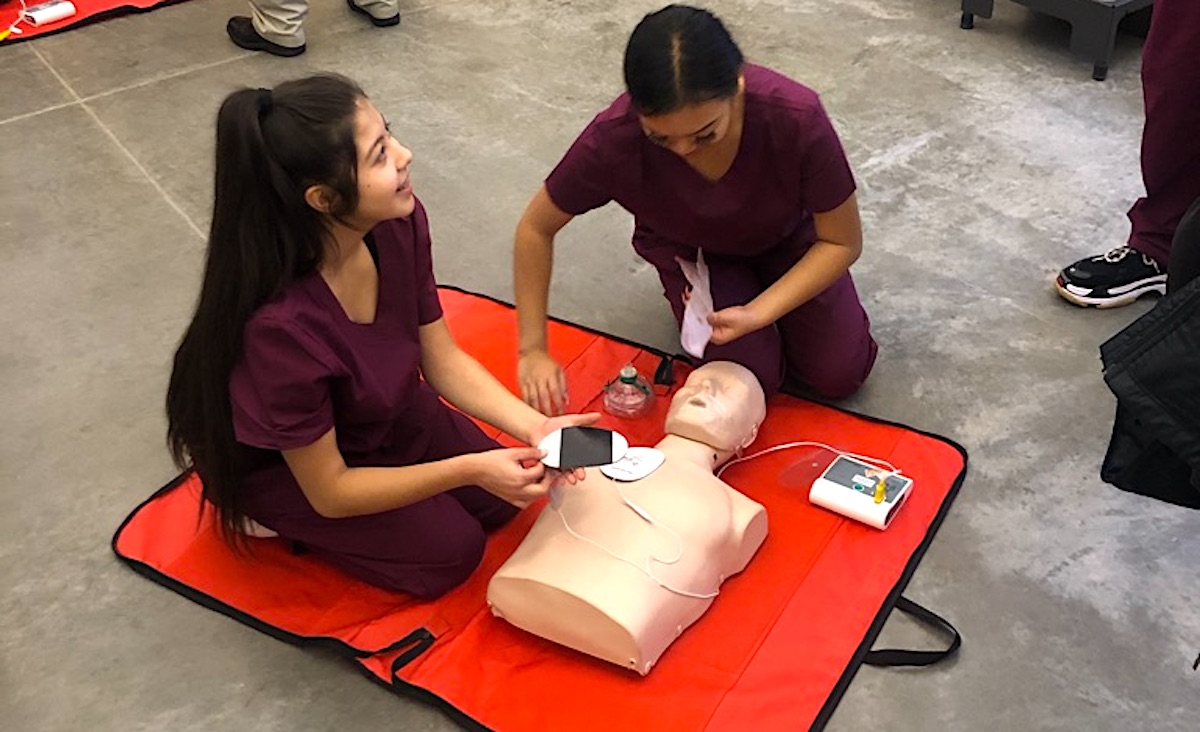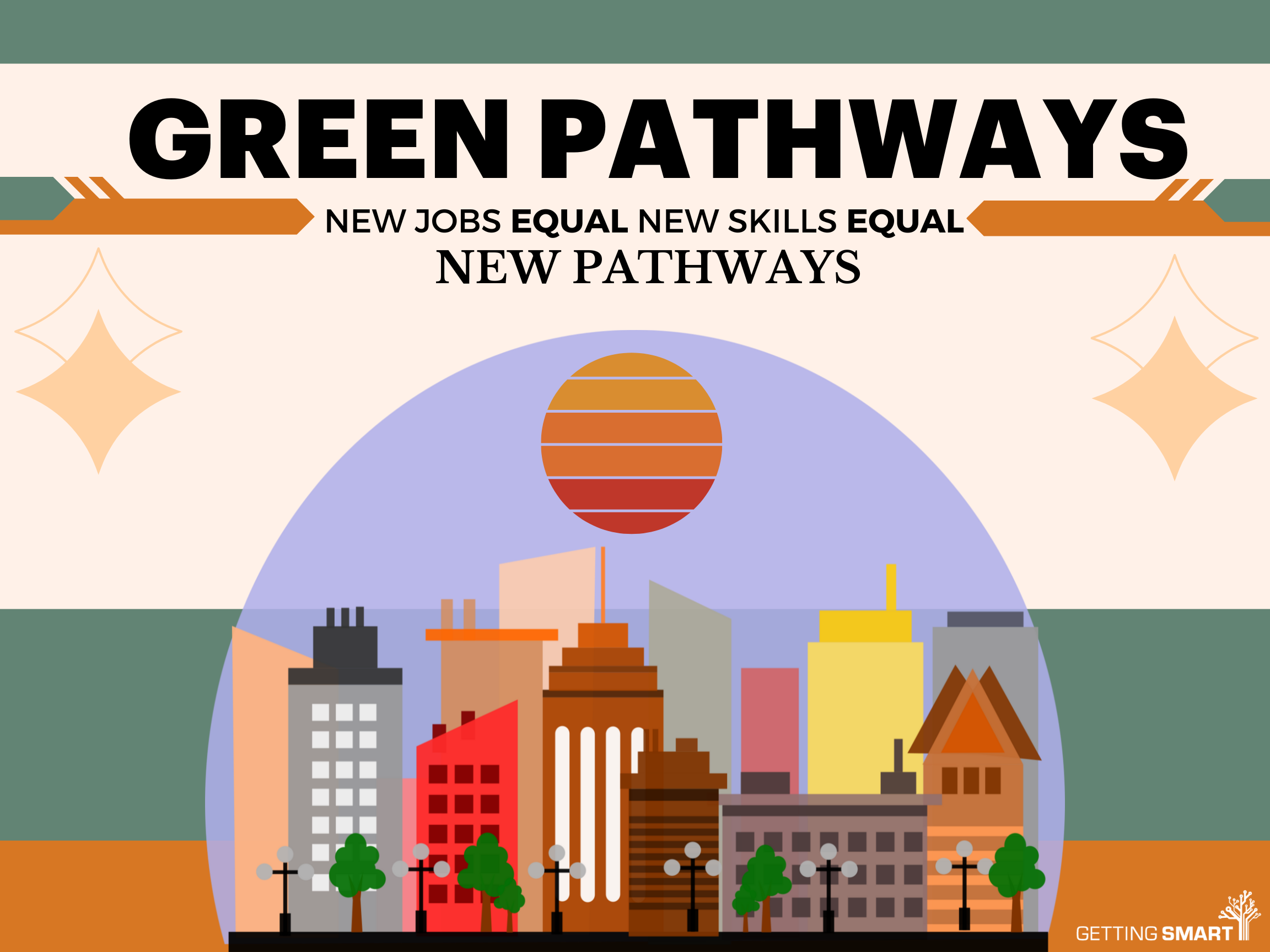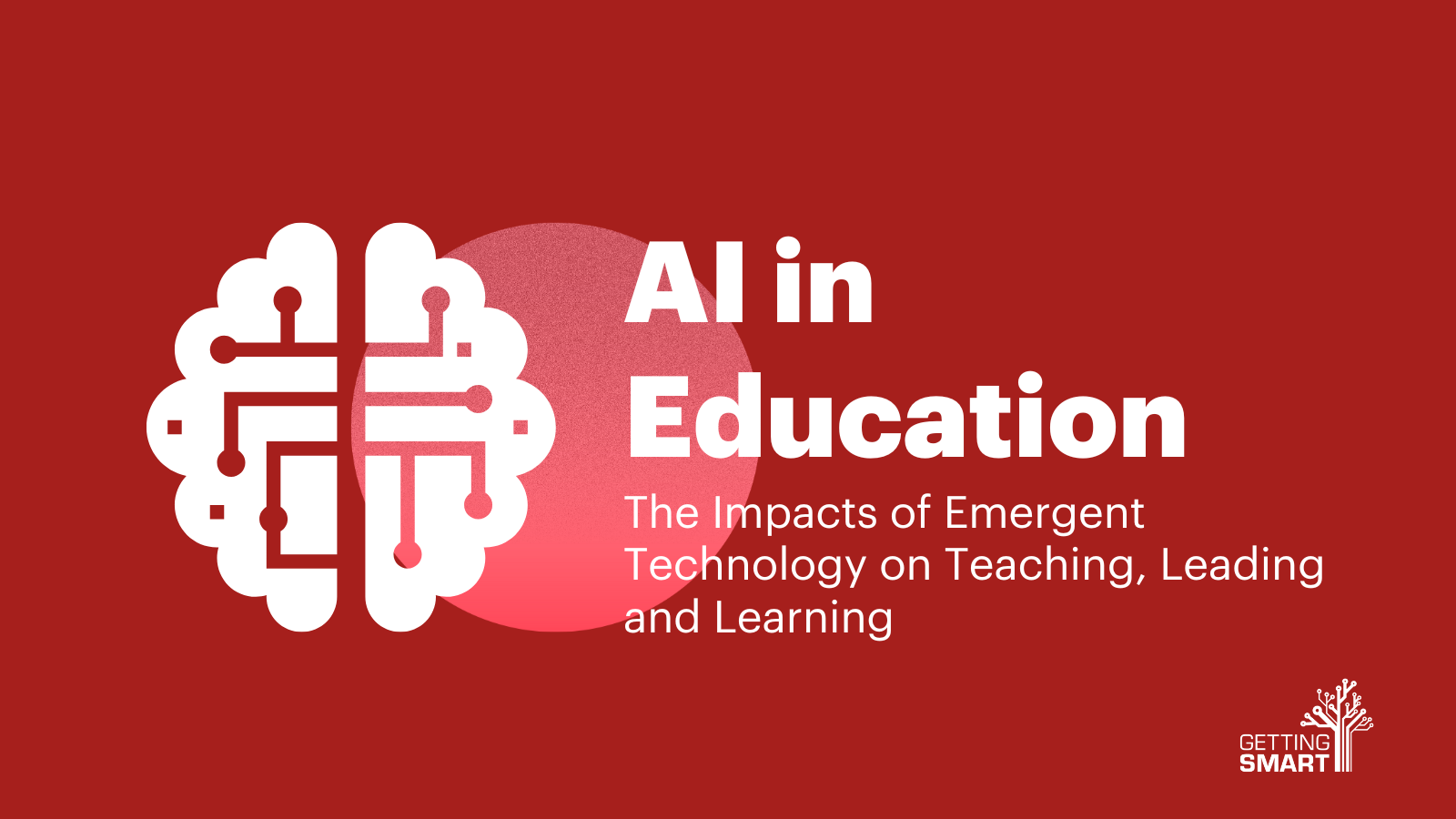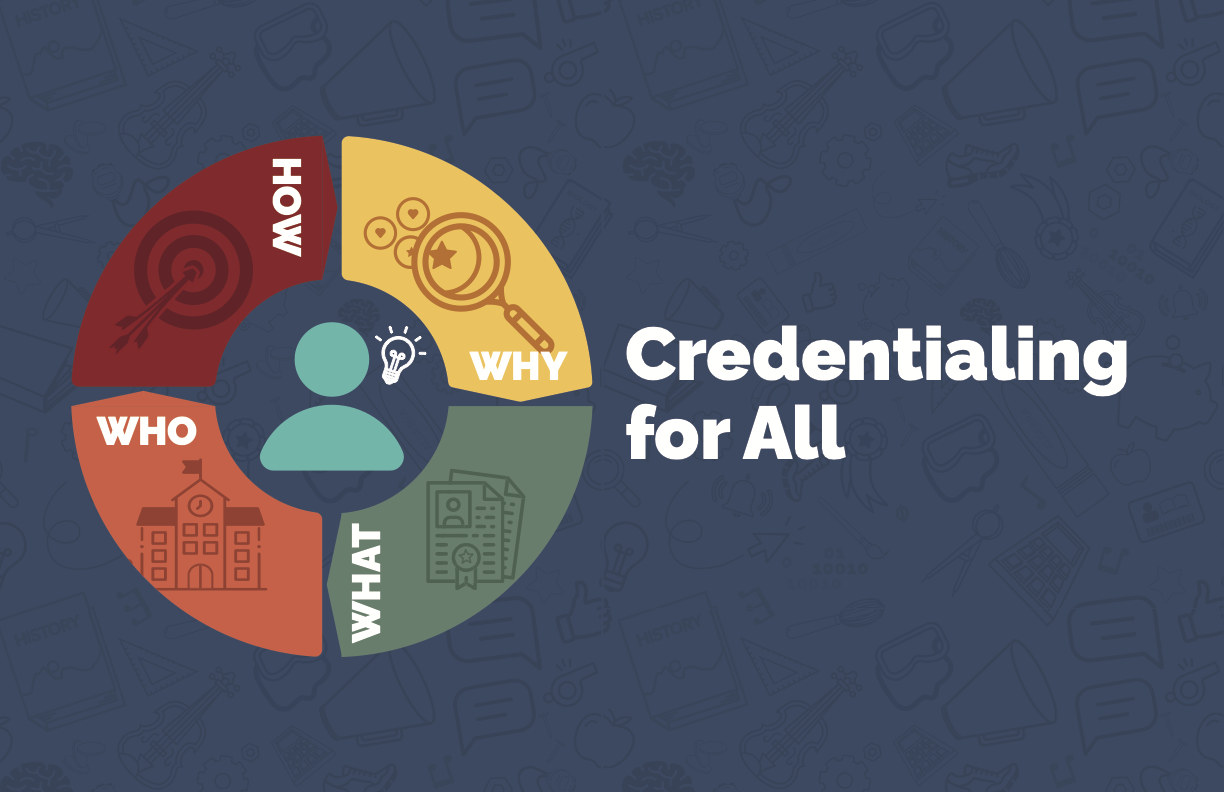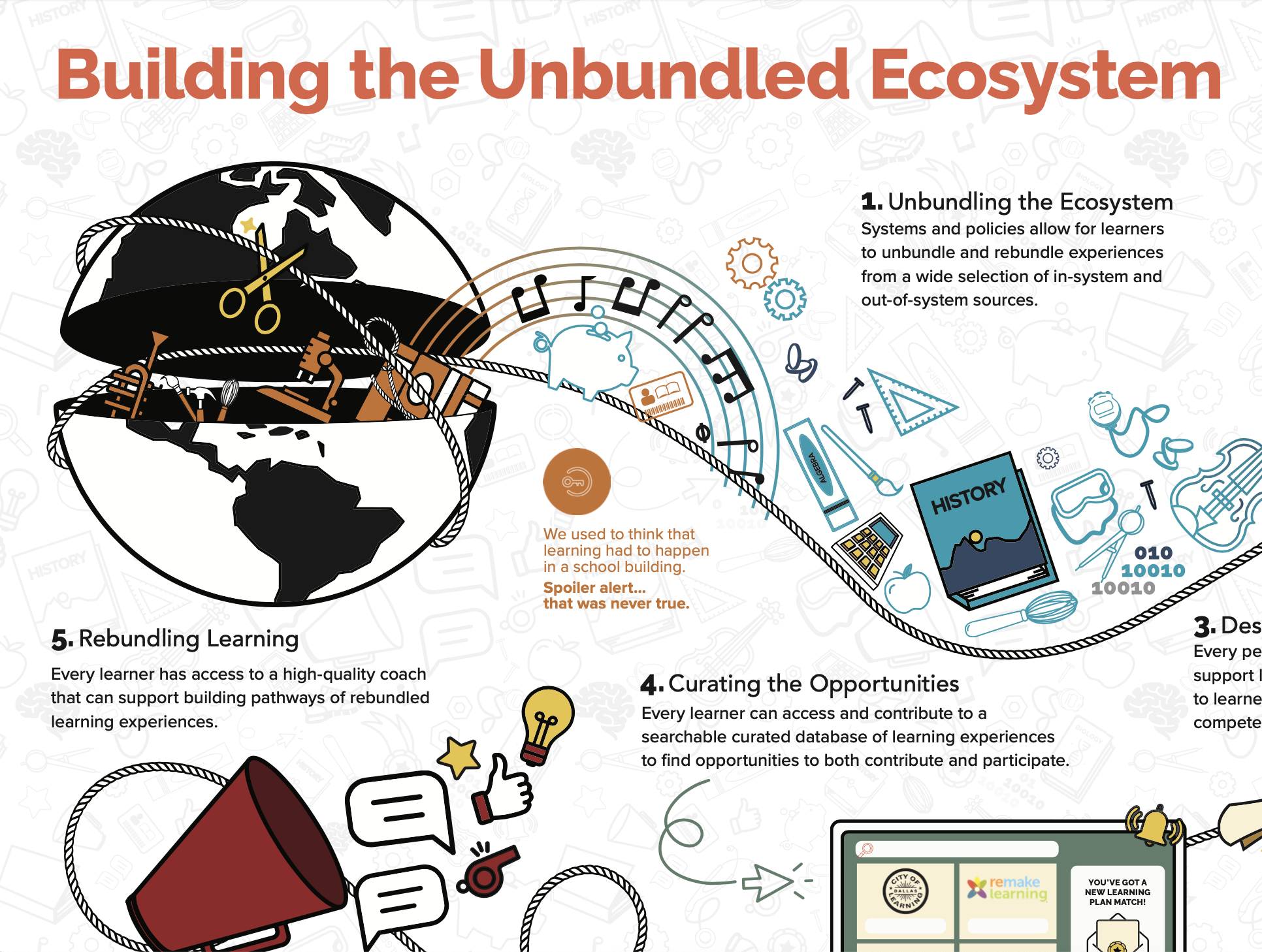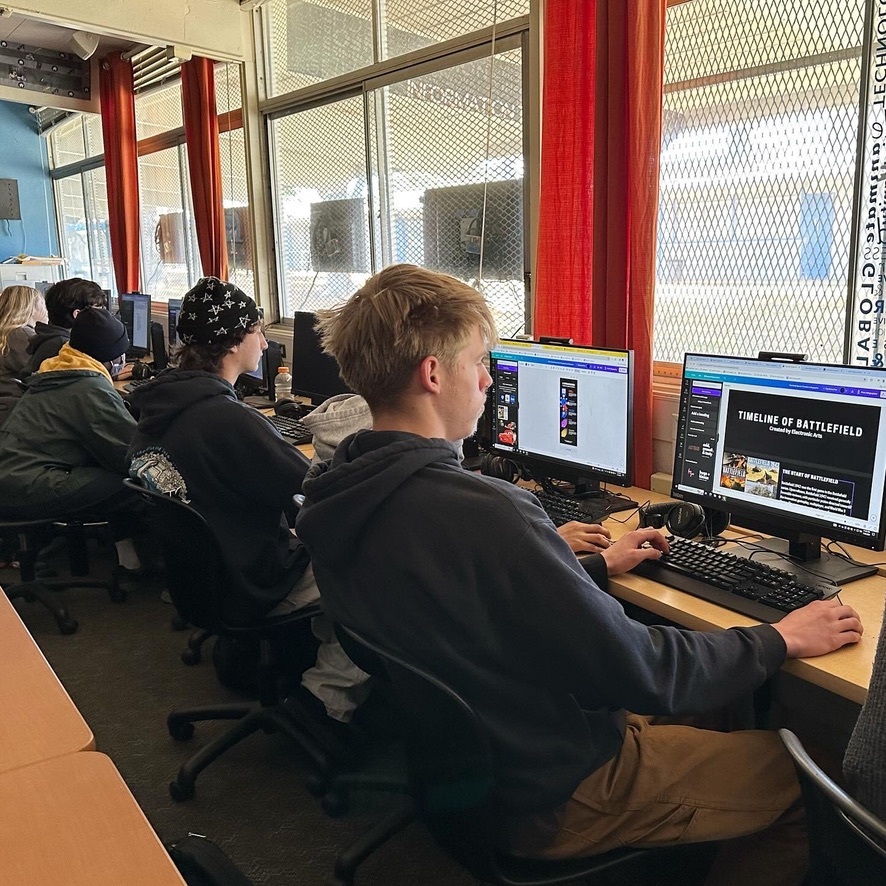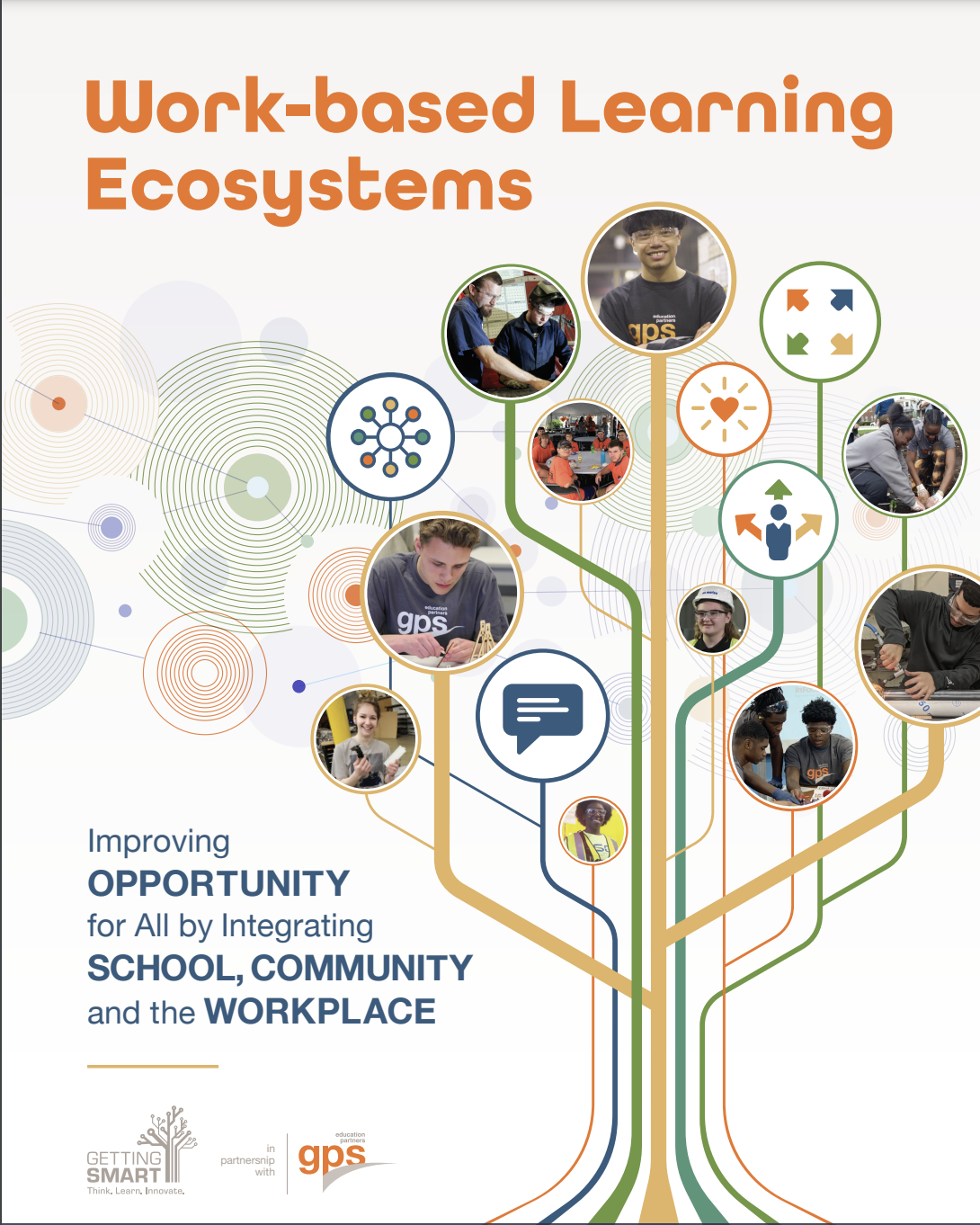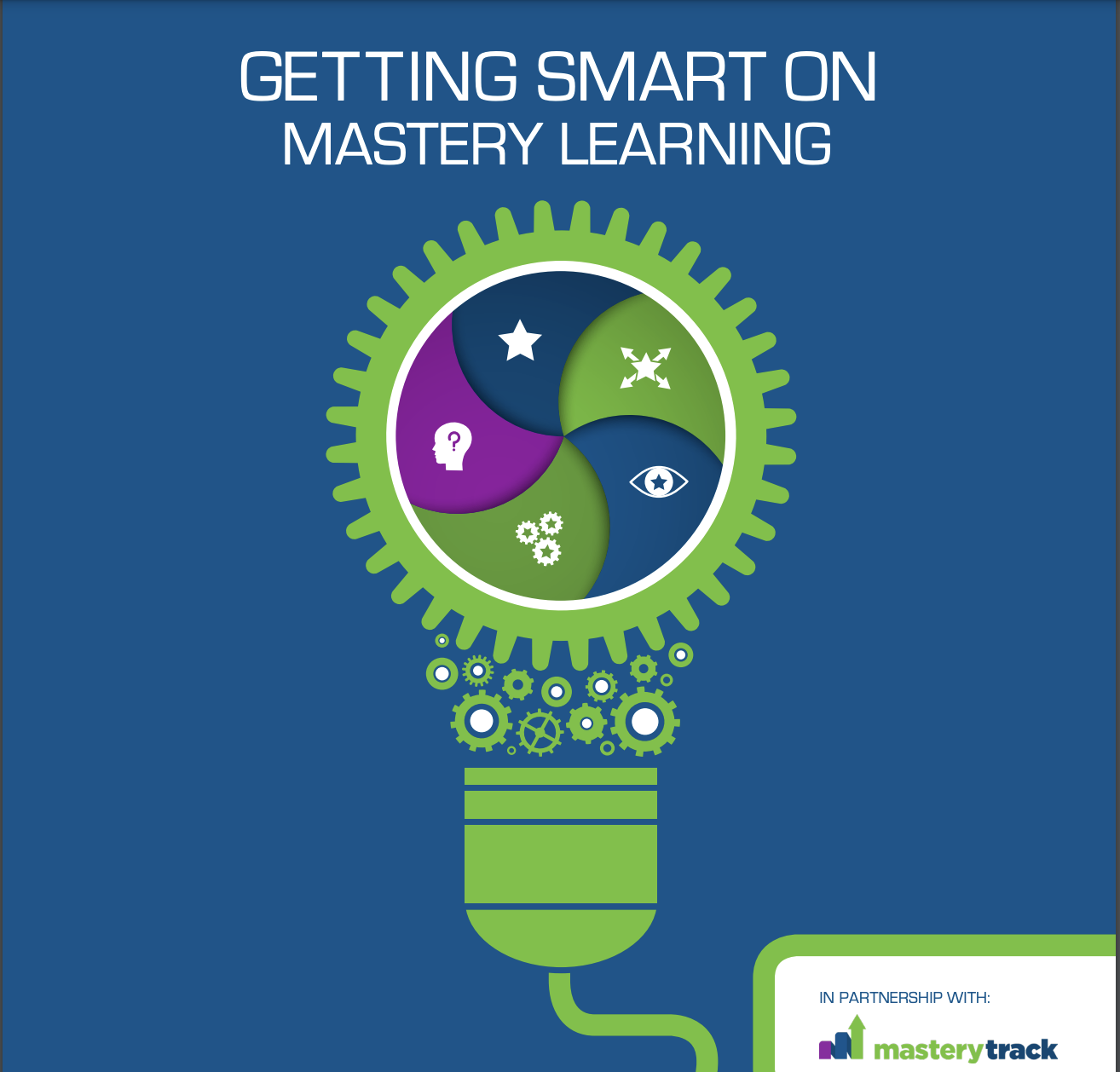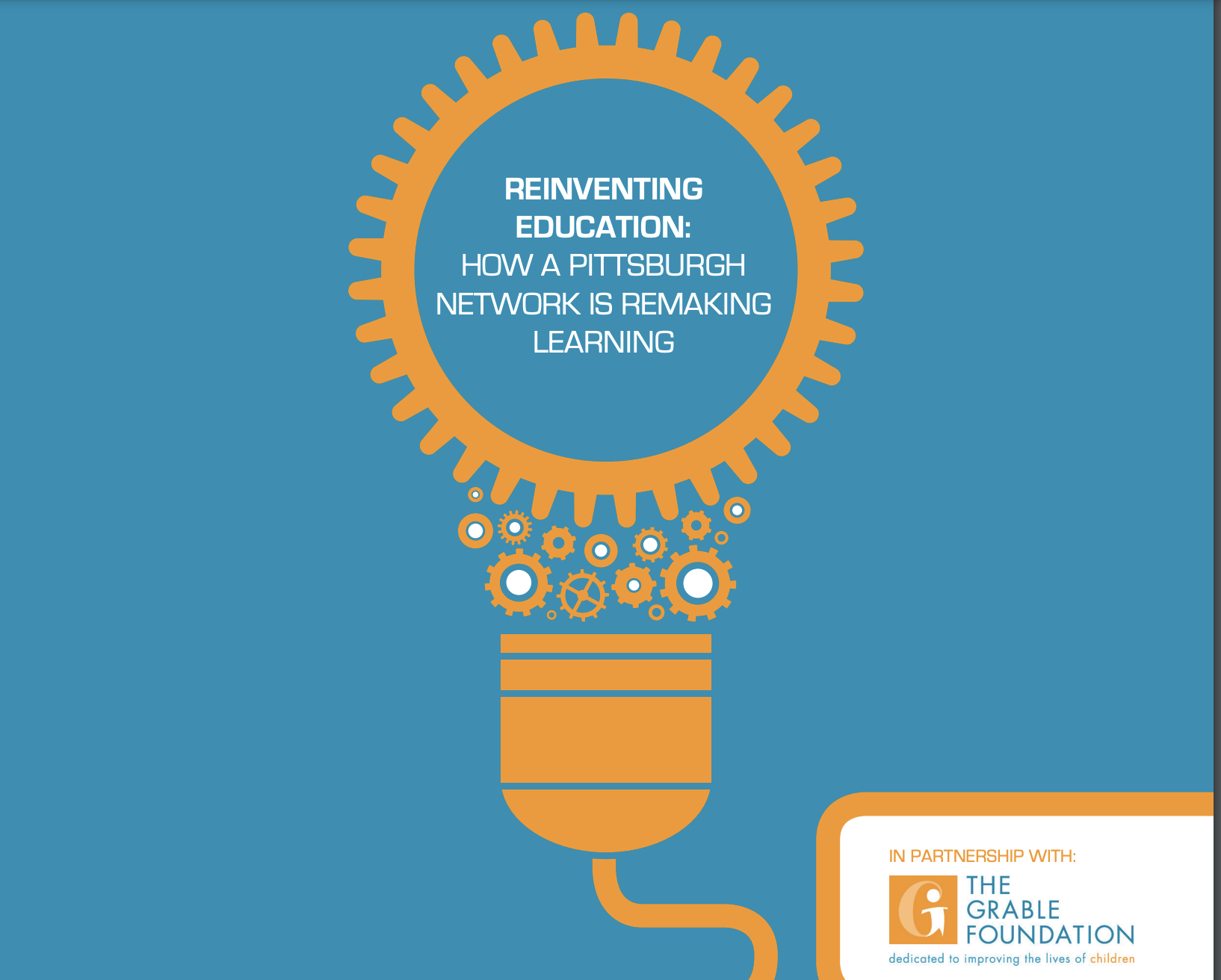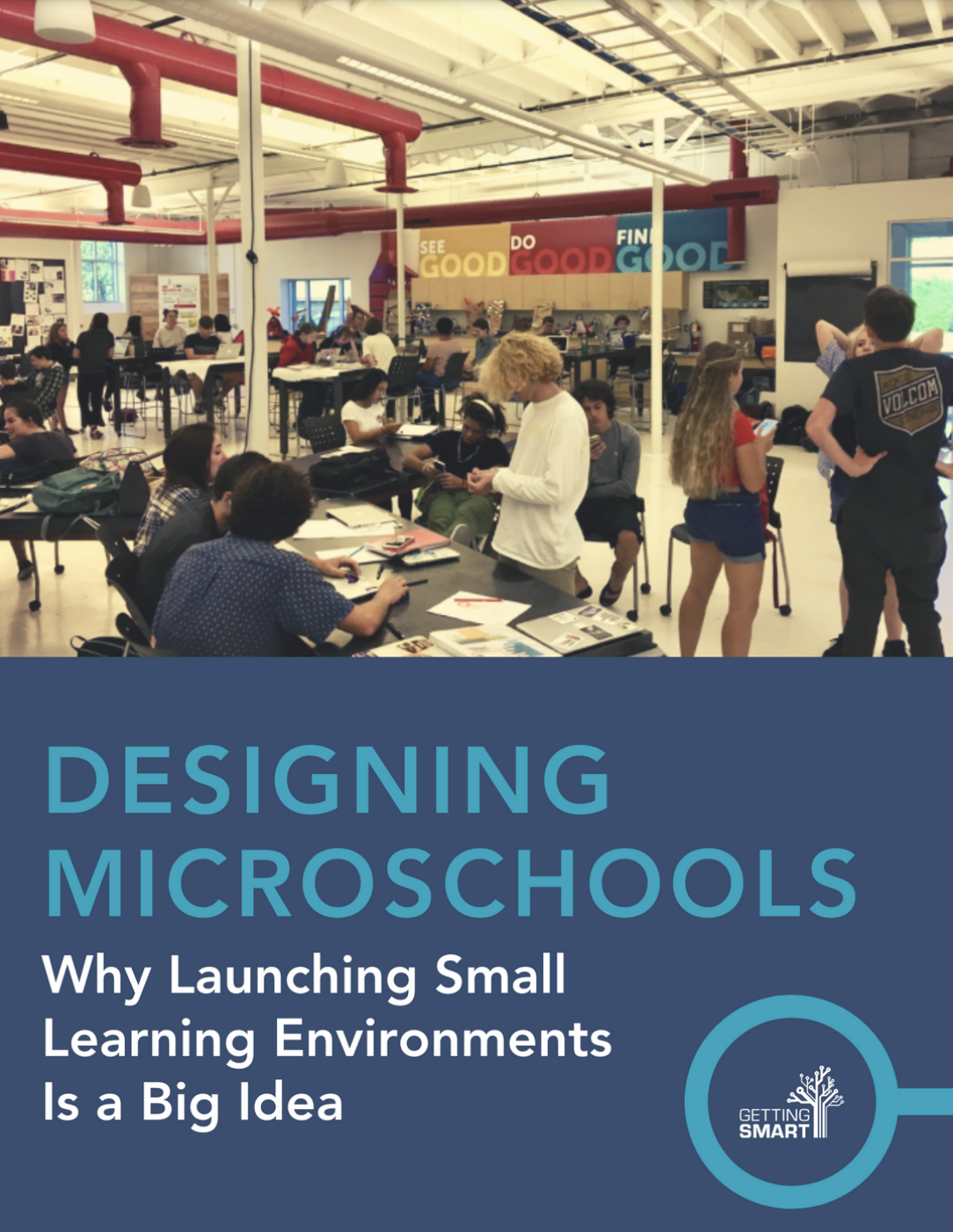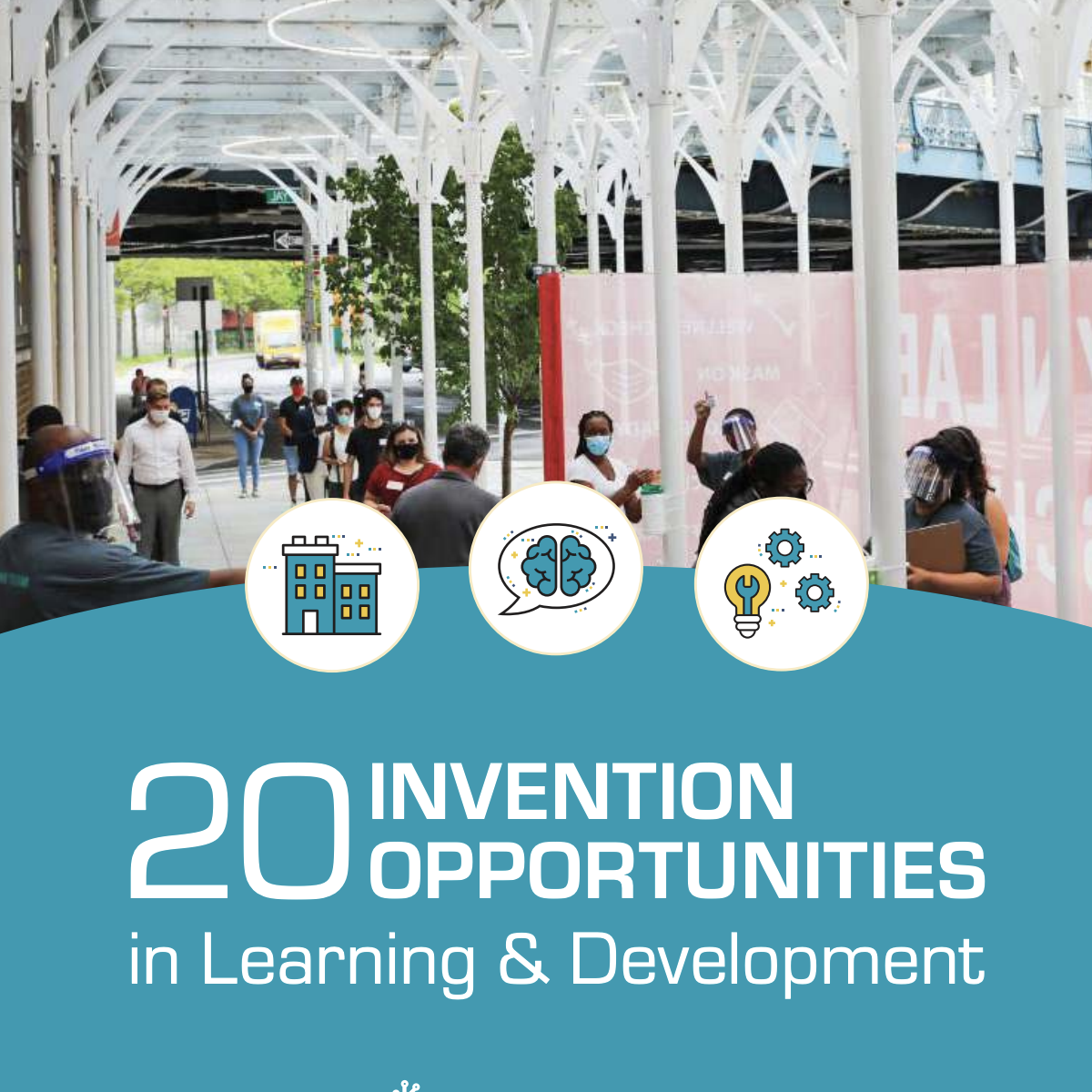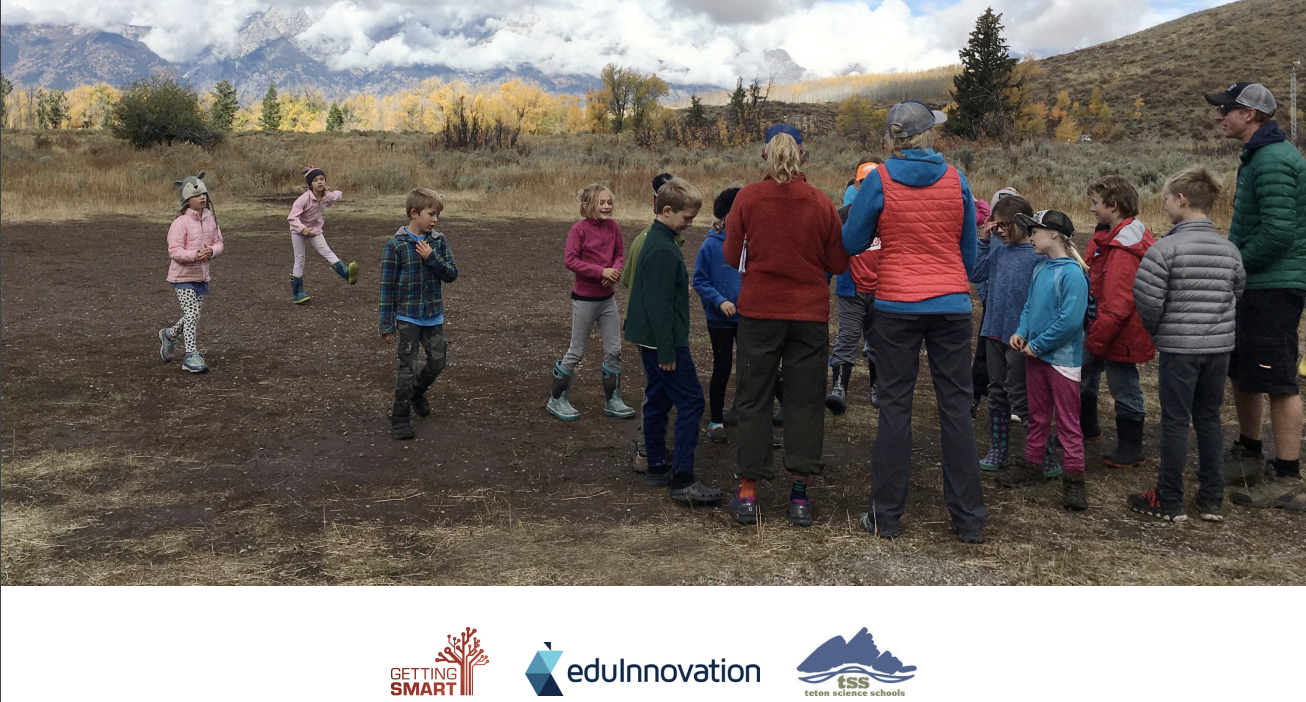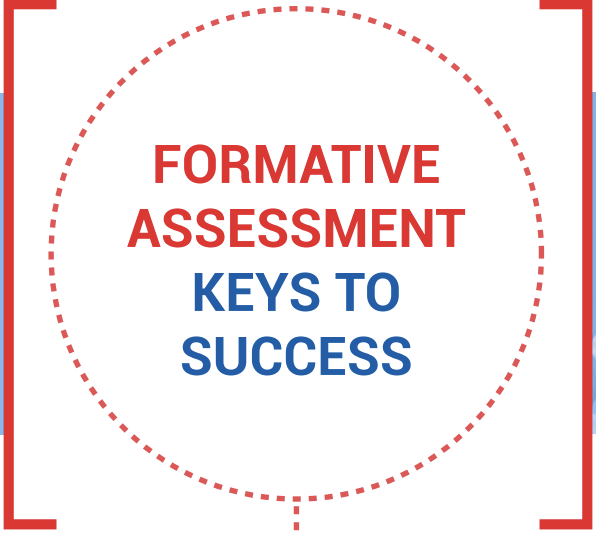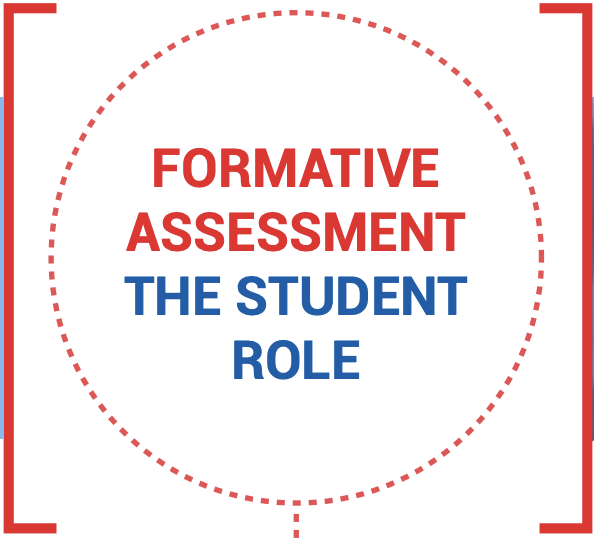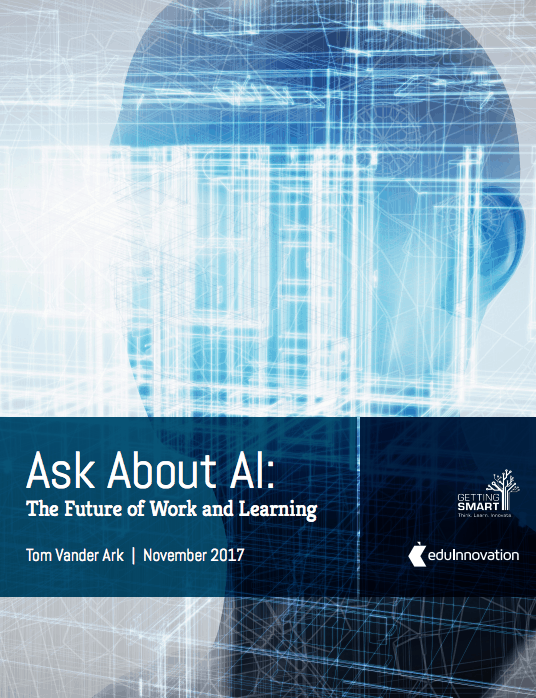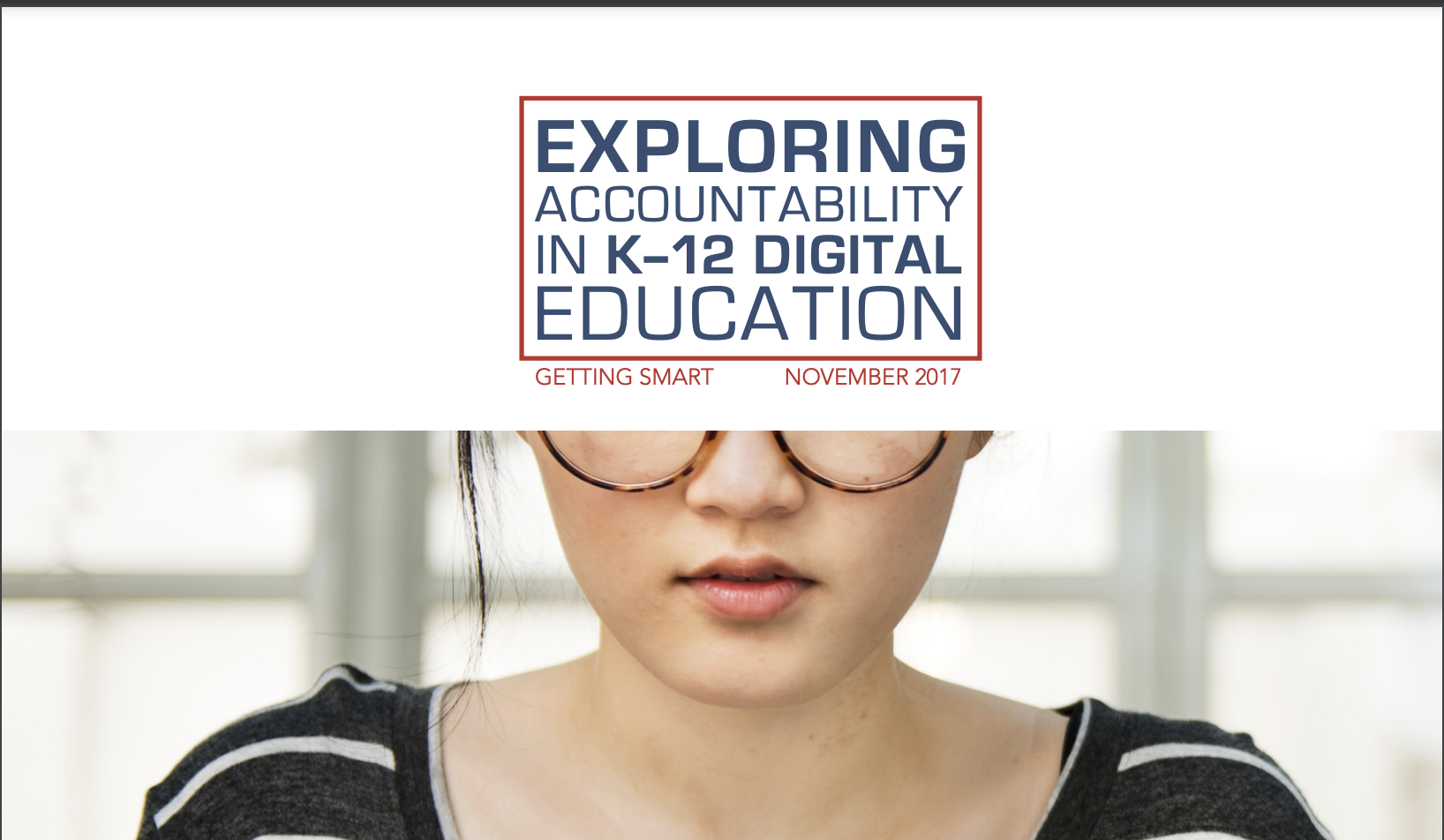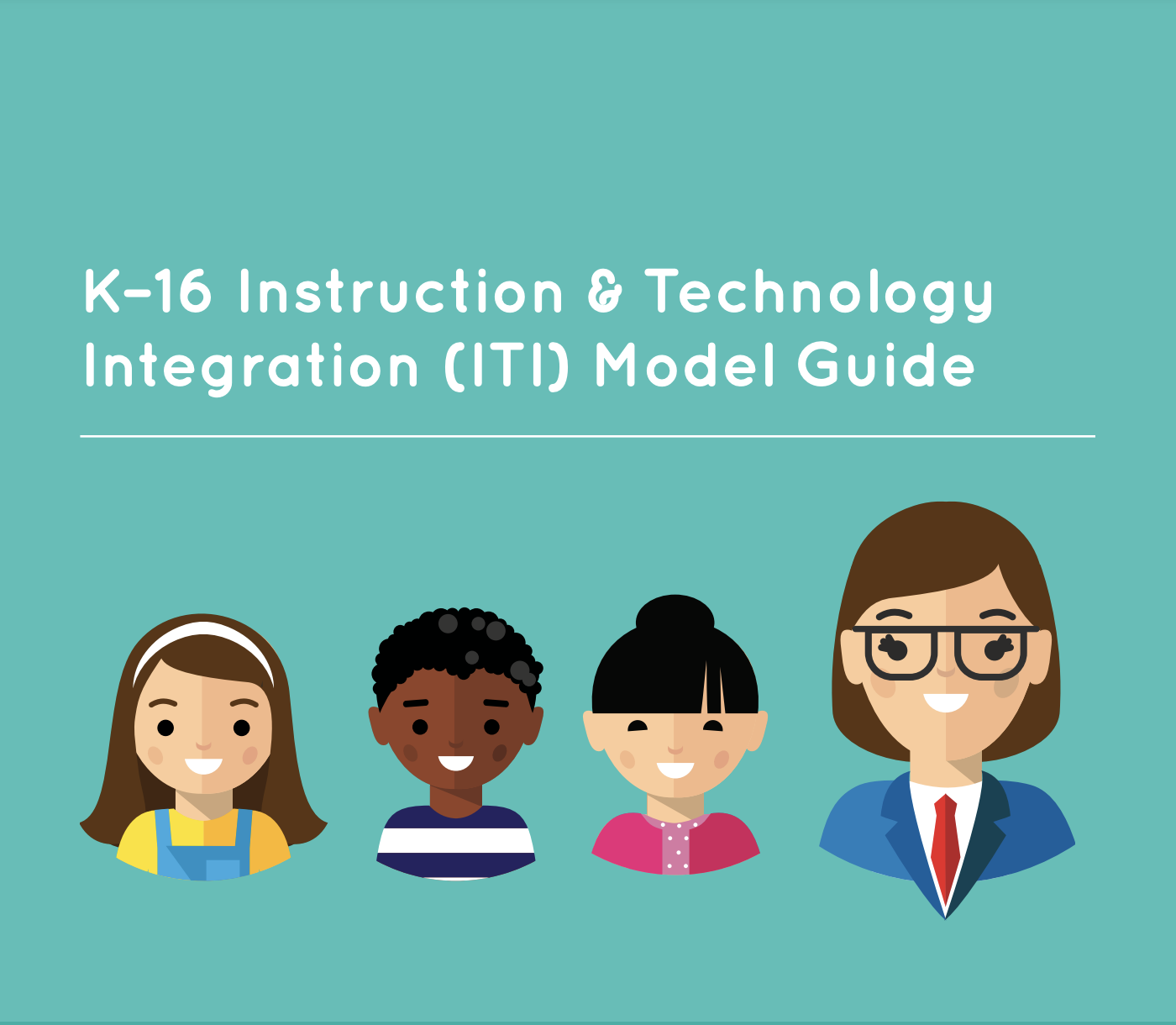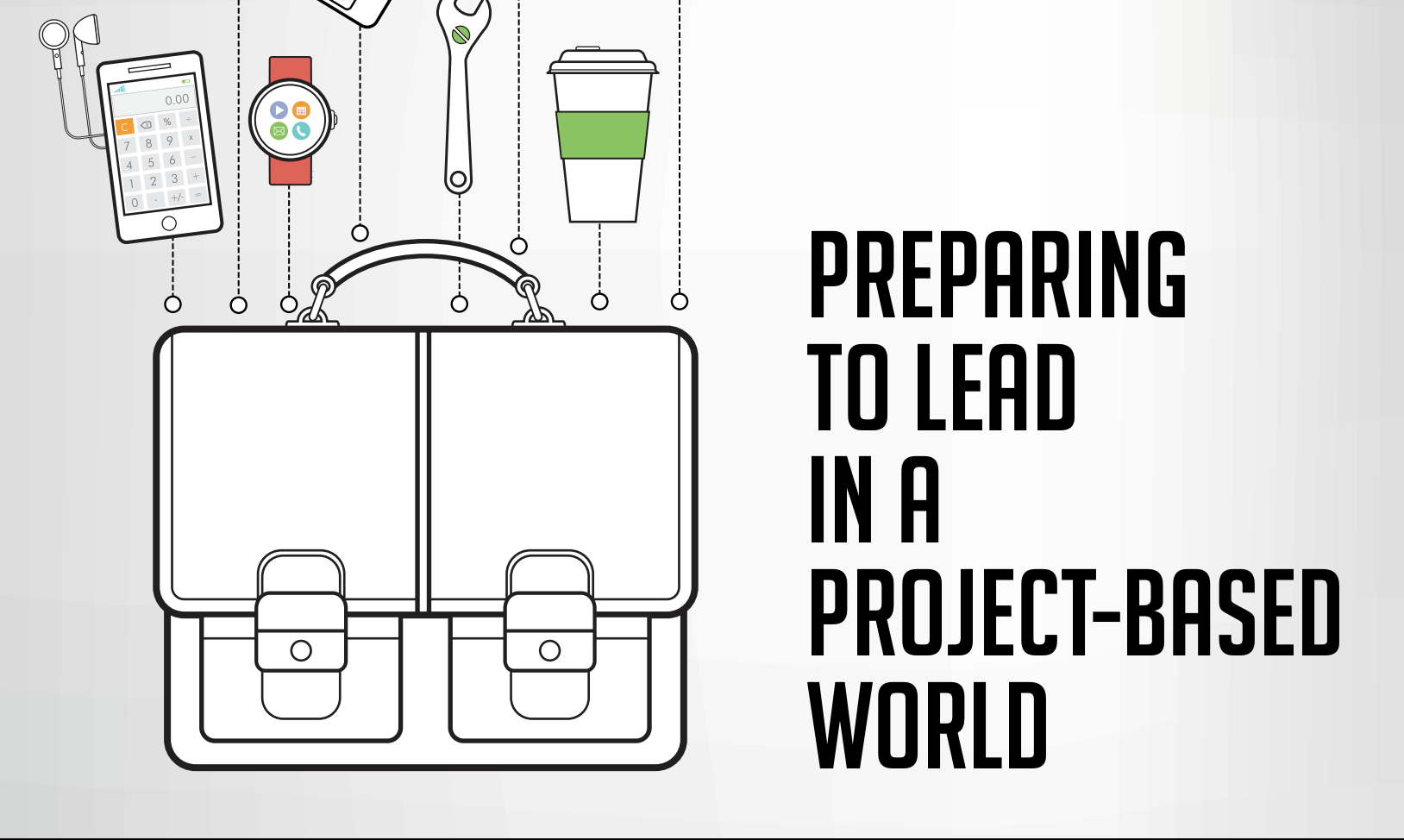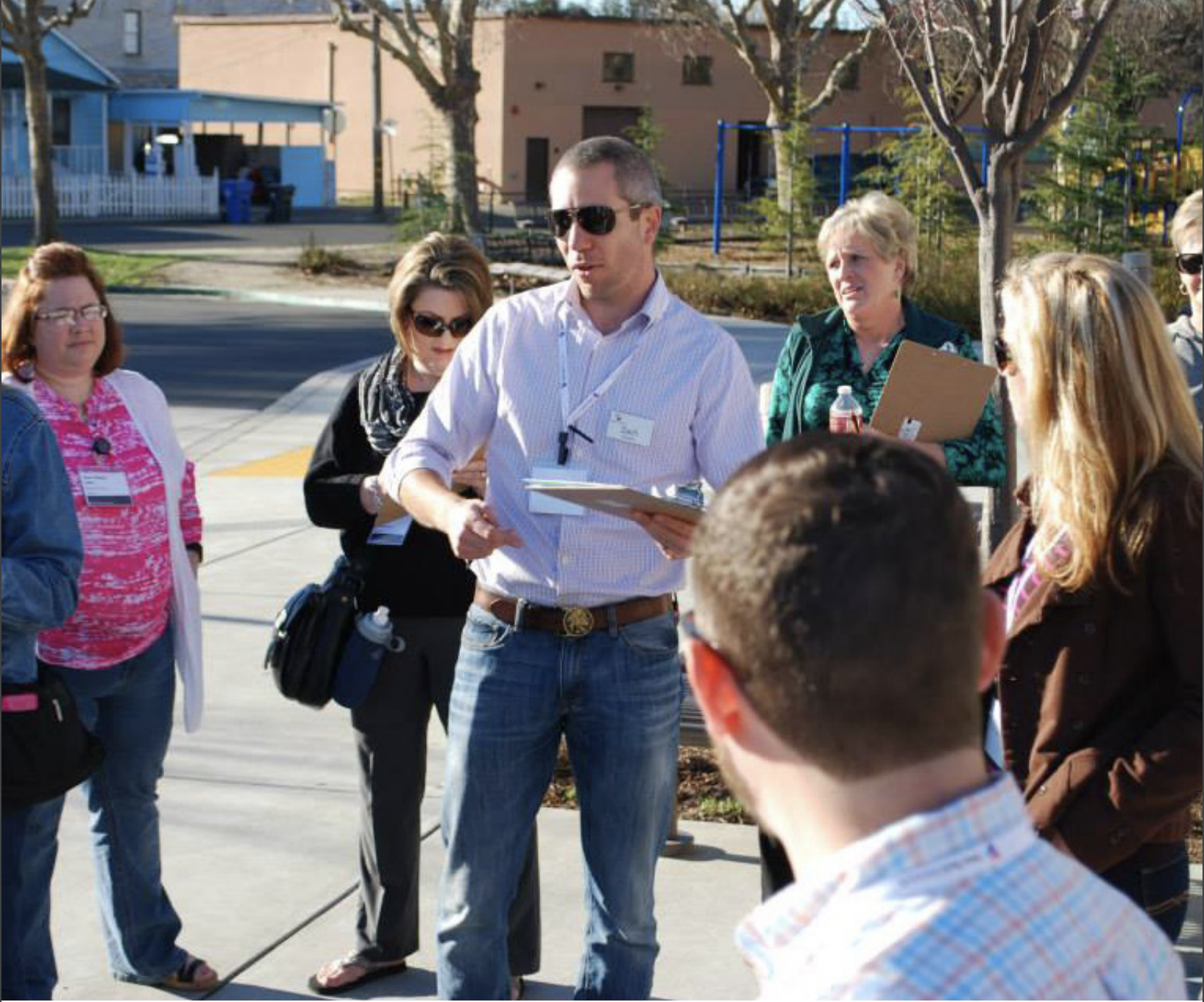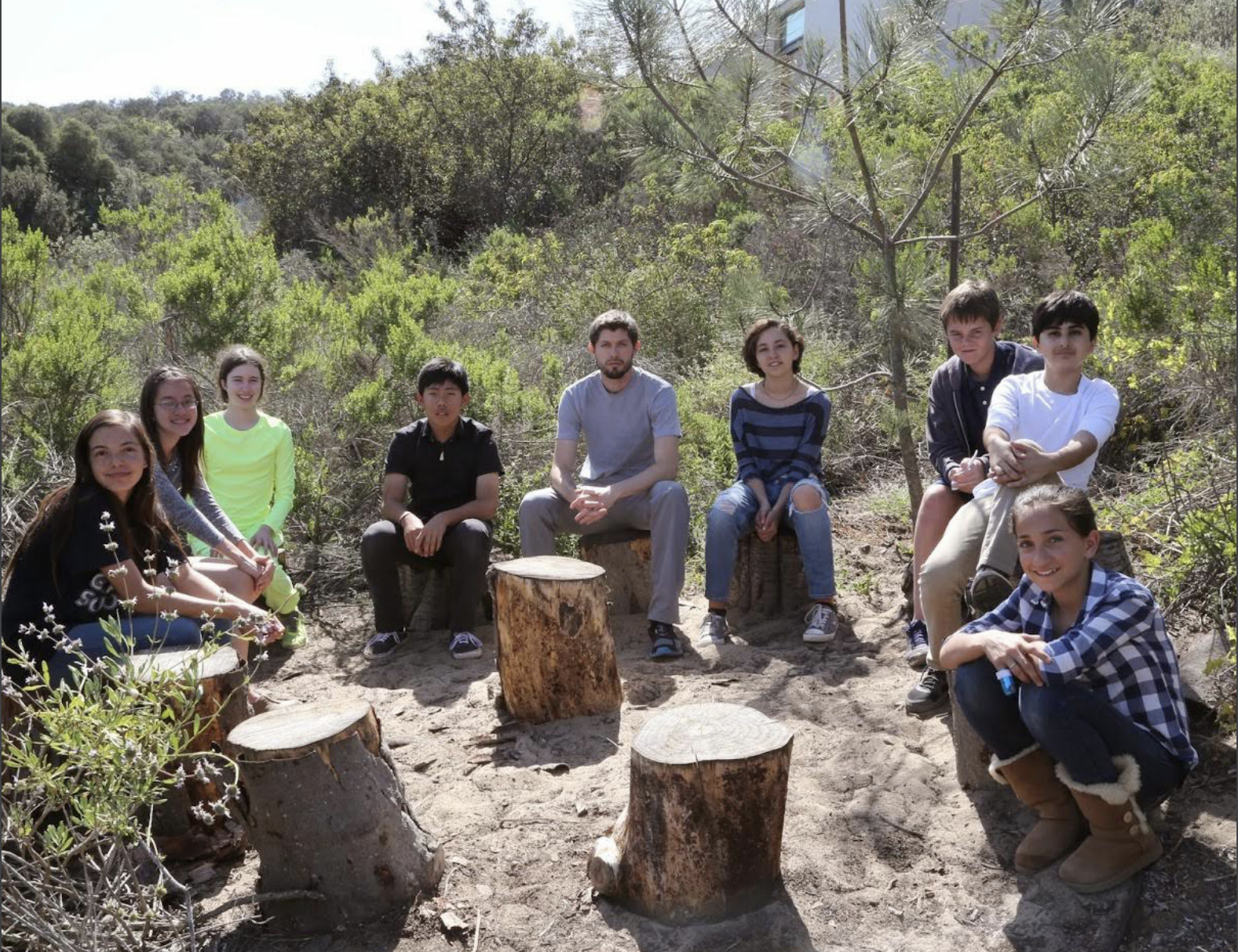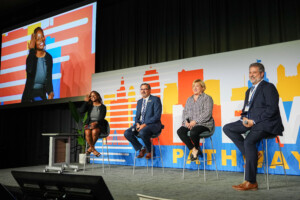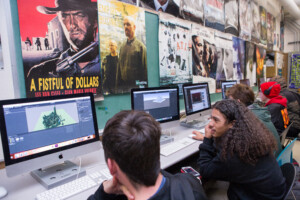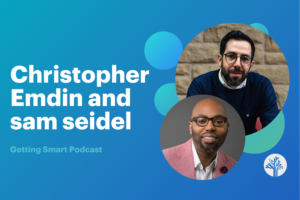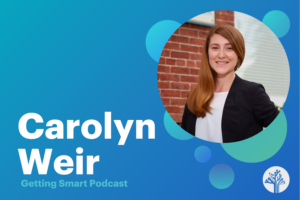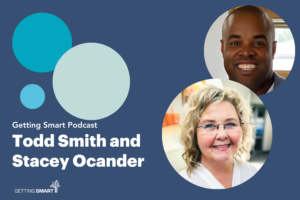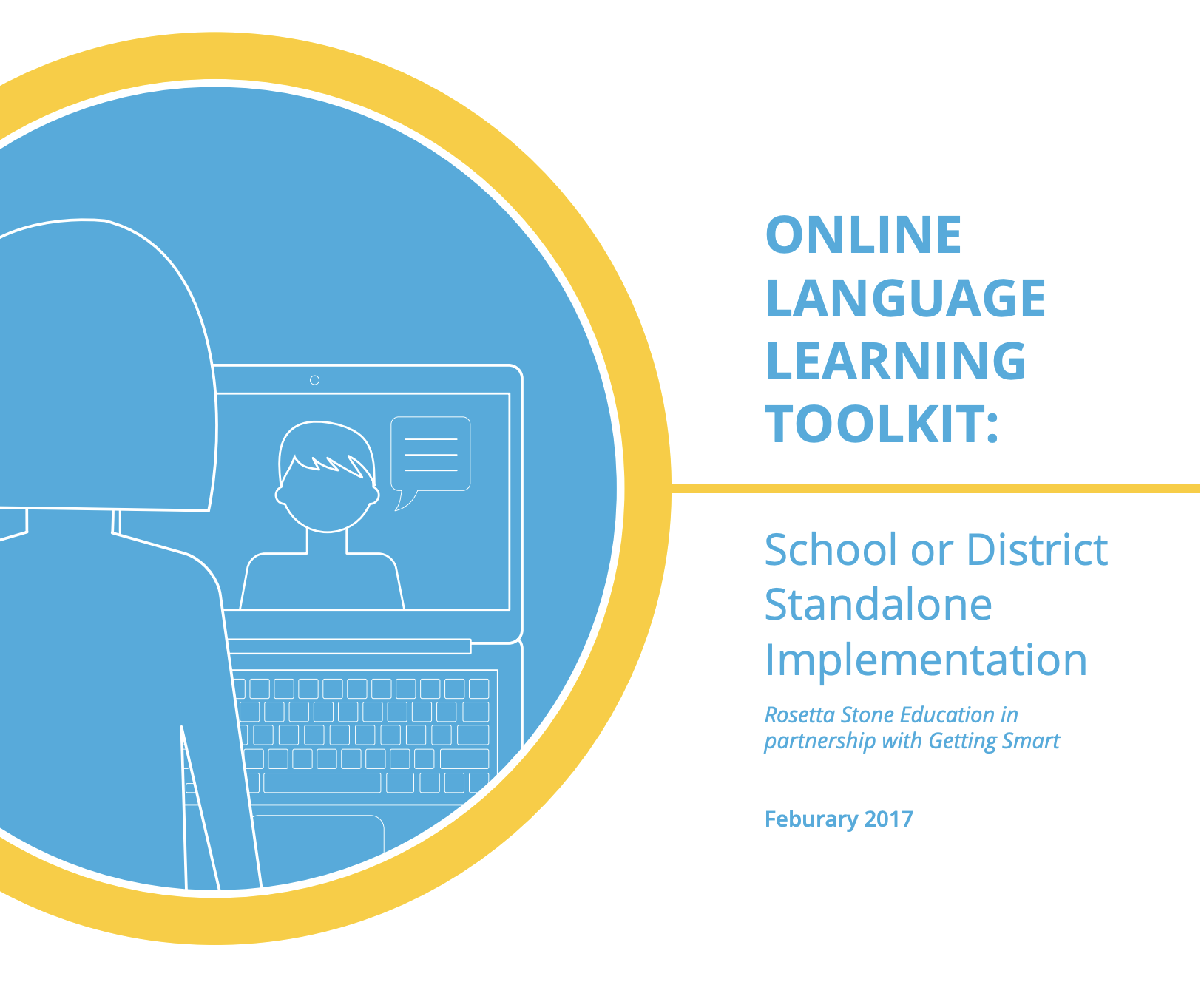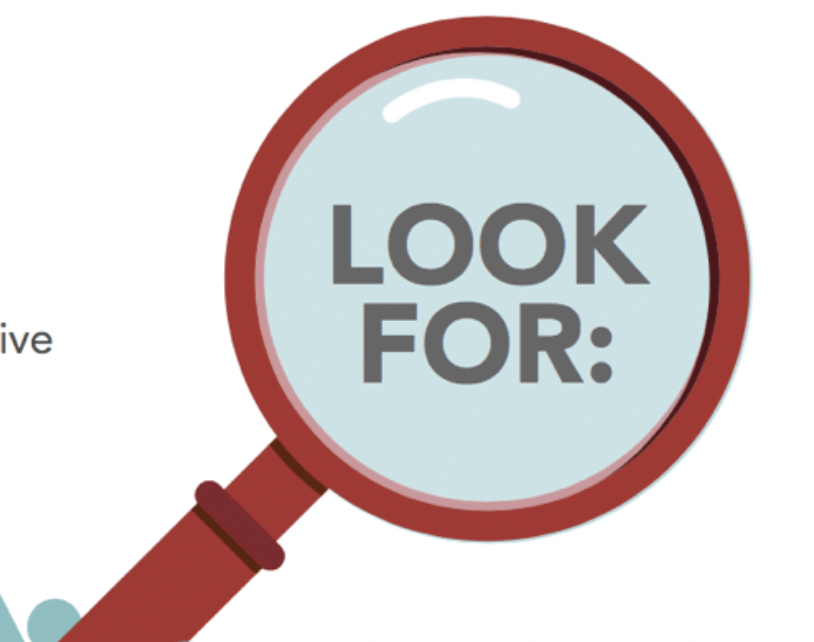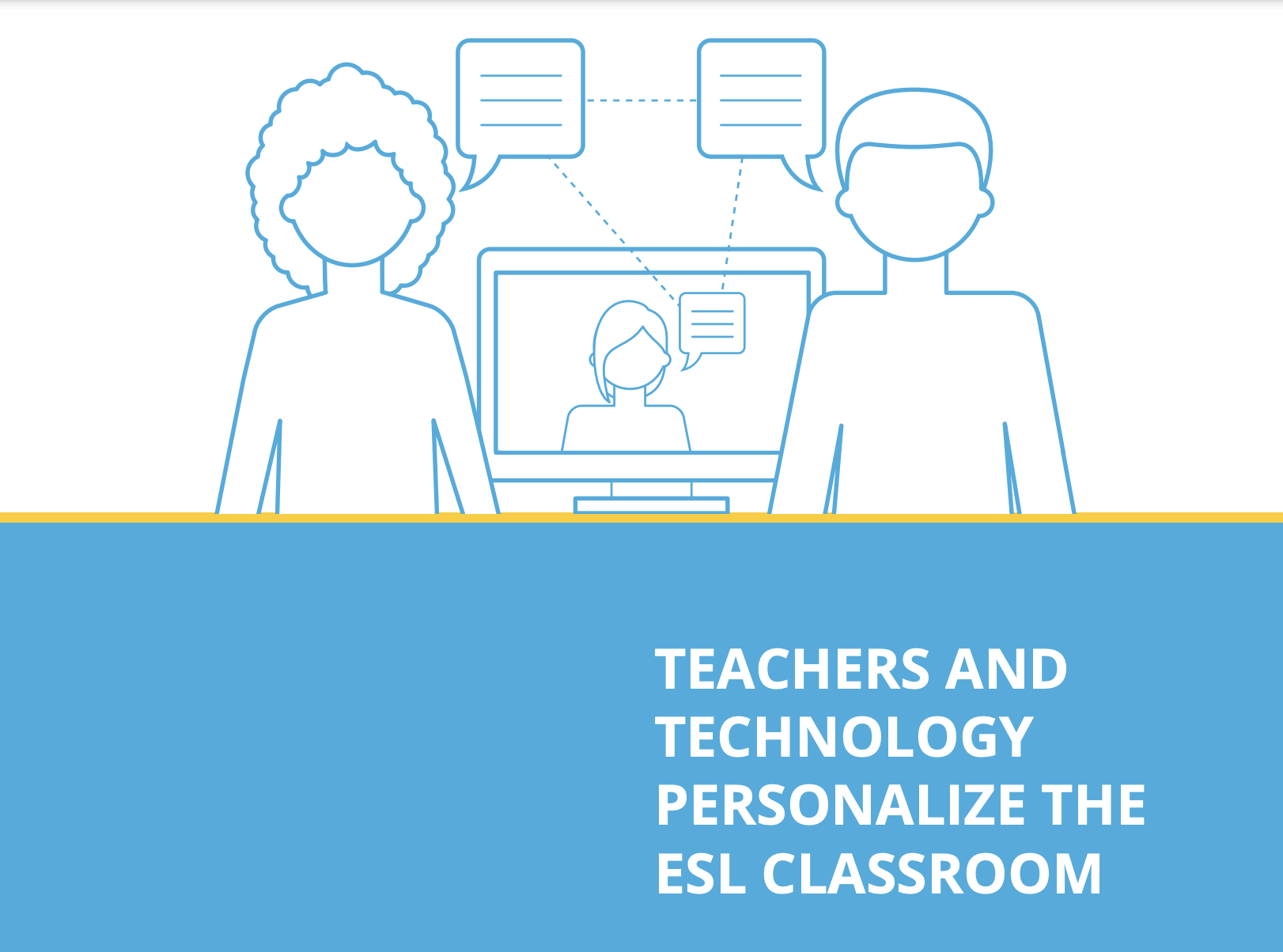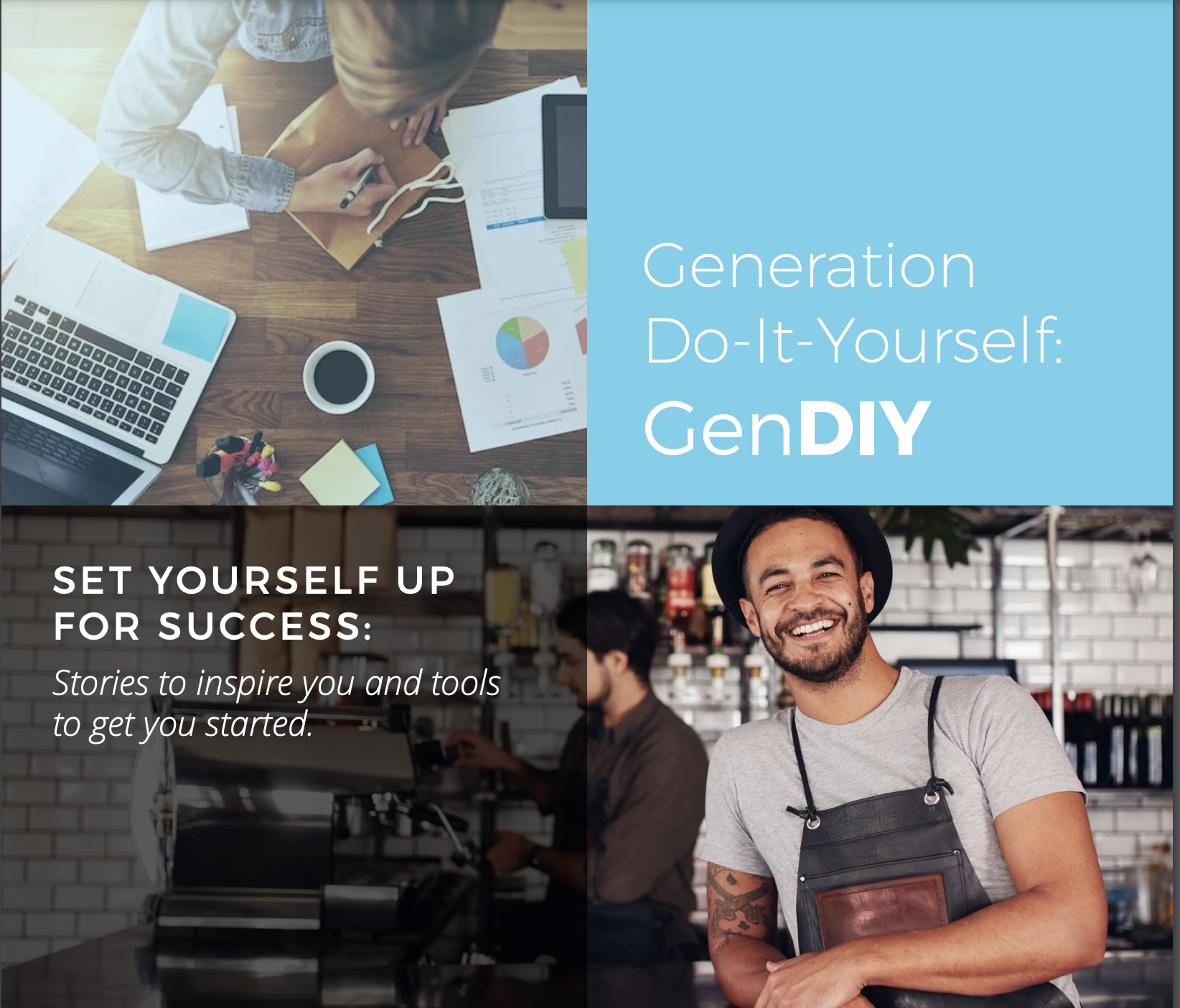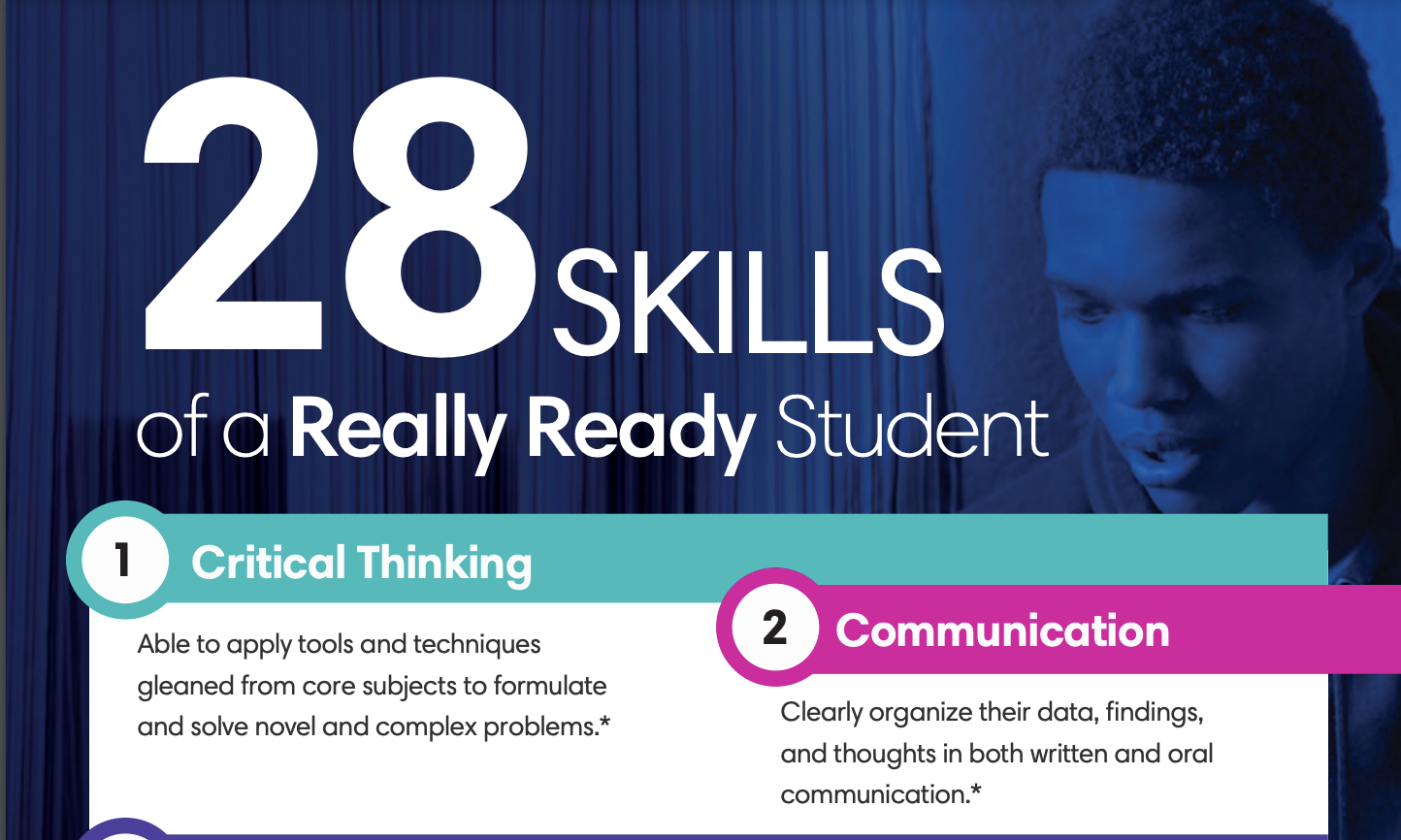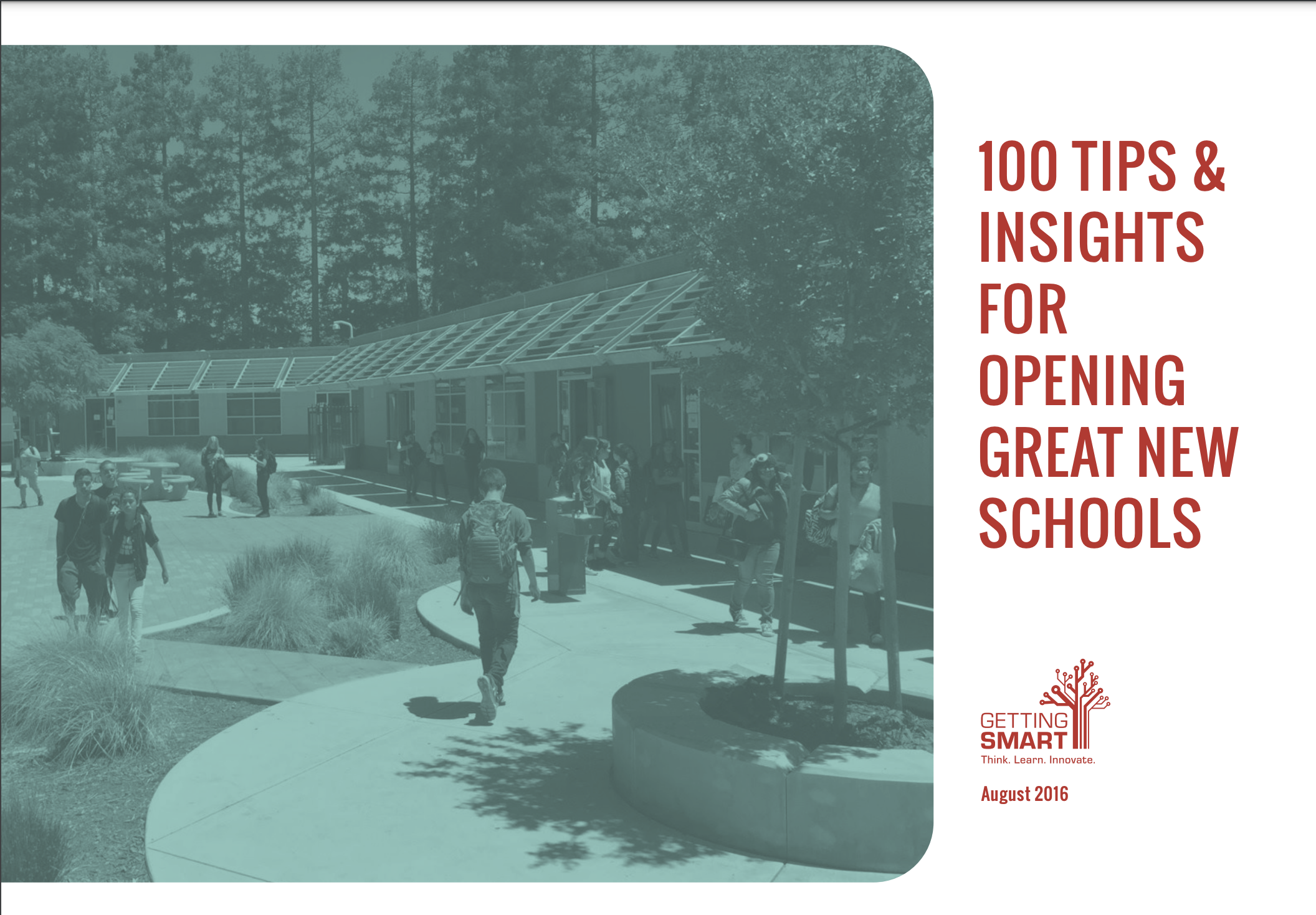Publications
Publications & resources from the Getting Smart team & friends
Resources
Expanding Access, Value and Experiences Through Credentialing
In an era where skills and competencies are at the forefront of educational success, the transition from traditional transcripts to Learning and Employment Records (LERs) is pivotal. This analysis provides key insights and practical frameworks to help educational institutions and organizations implement equitable and transparent credentialing systems.
A New Education Architecture: New Goals, Learning Experiences and Signals
This paper describes a policy opportunity in three interlocking areas:
- New goals for learners,
- New learning experiences aligned with those goals, and
- New signals that track progress and mastery of those goals
New Pathways Handbook
Over the last few years, we’ve shared hundreds of pathways stories through our blog, podcast, and various publications. To synthesize these key learnings, we compiled the New Pathways Handbook, a great jumping-off point to our numerous resources and launchpad for getting started with pathways.
Career Clusters Appendix
We’re following schools across the country on their journey to create pathways programs that help connect students to real-world projects in emerging jobs and sectors. Our Career Clusters Appendix helps to share these stories.
The Portrait Model
A “Portrait” framework helps leaders implement a new collective re-design vision. This publication highlights the “how” and the “why” of five interconnected and dynamic portraits: the Portrait of a Learner, the Portrait of a System, the Portrait of a Leader, the Portrait of an Educator and a Self-Portrait.
Support & Guidance
With Support and Guidance, strong advisory systems build purpose, help learners explore careers, build their social capital and skyrockets their potential. Strong Support and Guidance systems are critical for learners to increase their agency and sense of belonging. This publication highlights models and exemplars of robust advisory.
Green Pathways
Over the last few years, climate change and massive funding support has created new and immense demand for rapid infrastructure building and greening our economy. This publication focuses on identifying the many opportunities for developing a purpose-driven and skillful workforce via Green Pathways.
The goal of Green Pathways is to generate quality jobs, which will happen through the introduction and nurturing of green skills. These skills include, but are not limited to, climate literacy, project-based learning and clean energy pathways.
AI in Education
This new publication AI in Education is a comprehensive exploration of the potential benefits and challenges of AI integration in the education system. The publication starts with a brief history of AI and its impact on different sectors, including education. It then delves into the potential benefits of AI in education, including personalized learning, improved outcomes, and reduced administrative burden for educators. We also acknowledge the potential challenges and concerns surrounding AI integration in education, including data privacy, bias, and equity.
Credentialing for All
Our latest publication answers the “how,” “what,” “why,” and “who” of credentialing learning experiences. Through video, diagrams and countless examples, we explore what an education system that empowers learners with transparent, portable learner records could look like and addresses the many benefits of a credentialed approach.
Unbundled: Designing Personalized Pathways for Every Learner
Every learner deserves an unlimited number of unbundled opportunities to explore, engage, and define experiences that advance their progress along a co-designed educational pathway. Each pathway provides equitable and personalized access to stacked learning experiences leading to post-secondary credentials and secure family-sustaining employment. This vision is only enabled by an unbundled learning ecosystem.
Unfulfilled Promise:
The Forty-Year Shift from Print to Digital and Why It Failed to Transform Learning
The shift from print to digital is the most significant change in how human beings learn since the printing press. It marked a shift from information scarcity to abundance, a shift from searching to sorting. This resource takes a look at the last four decades of edtech and investigates its long-term impact.
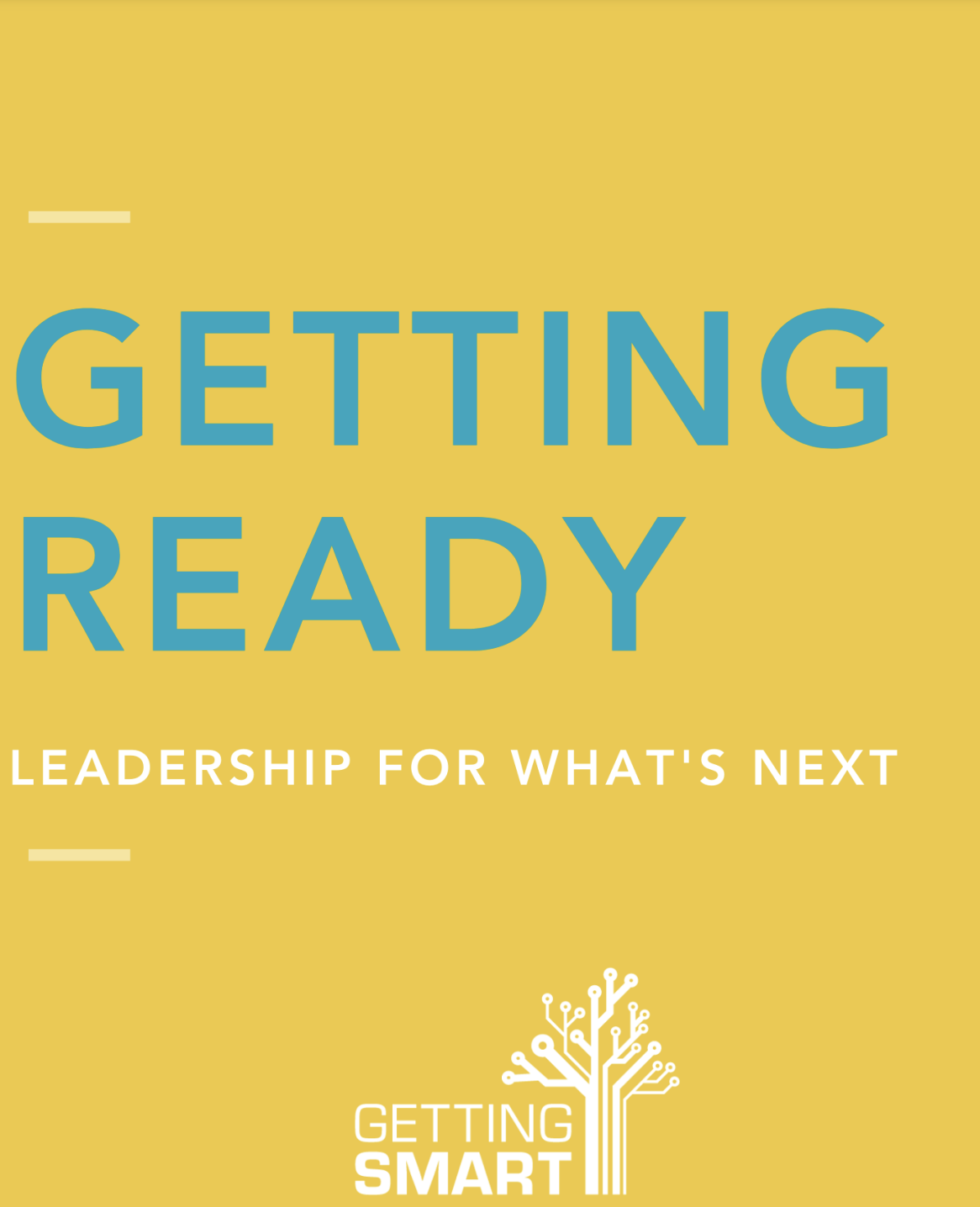
Getting Ready: Leadership for What’s Next
Leading change is challenging for any organization. But in education, it is different from other professional fields where one’s ability to adapt is the key to survival. After the last challenging years, we have realized that effective educational leadership must root in innovating and prototyping ideas to transform existing systems and structures.
Work-Based Learning Ecosystems
The goal of this paper is to advance the case for equitable Work-Based Learning models for all through an ecosystem approach that is scalable and sustainable.
Getting Smart On Mastery Learning
This series explores what mastery is and how it is determined, recorded and managed. It will help you make the shift to a mastery grading system by focusing on strong protocols, transparent and
consistent communication, and supportive policies.
Reinventing Education: How a Pittsburgh Network is Remaking Learning
Pittsburgh has emerged as one of the most interesting learning ecosystems in the country.
Powered by great universities and invigorated by the Remake Learning network, the region is a collaborative carnival of learning. This publication highlights those innovations.
Designing Microschools: Why Launching Small Learning Environments is a Big Idea
New learning models, tools and strategies have made it easier to open very small schools of 15 to 150 students. These schools, often called microschools, are small, innovative and nimble educational spaces and models that provide a more connected, personalized and relevant learning experience. This guide will help you consider starting a microschool of your own through examples, best practices and instructions.
20 Invention Opportunities in Learning & Development
Twelve months like no other—the events of 2020 threw communities, economies and education systems into crisis. The collision of a pandemic, racial injustice, civic unrest and climate crisis accelerated trends and changed priorities, surfacing the opportunity for new learning capabilities. This guide helps unpack what we believe 20 of those opportunities are.
What is Place-Based Education and Why Does it Matter?
Place-Based Education (PBE) is an approach to learning that takes advantage of geography to create authentic, meaningful and engaging
personalized learning for students. Find out more about these powerful learning experiences.
Show What You Know: A Landscape Analysis of Competency-Based Education
This publication is a landscape analysis of the status of competency-based education in the U.S., including recommendations for action.
Formative Assessment: Keys to Success
To be successful in life and work as lifelong learners, students must develop the critical skill of learning how to learn. This guide unpacks some of these keys to success, including learning how to set goals, monitoring learning and developing strategies to independently take next steps to move their own learning forward.
Formative Assessment: The Student Role
For students to be active participants in their own learning, they must take an active role in formative assessment. This guide provides tools to better assess this in your school.
Ask About AI: The Future of Work and Learning
This report investigates the implications that AI will have for employment, education and ethics—to start a conversation about how we can shape a future that works for everyone.
Exploring Accountability in K-12 Digital Education
This brief aims to outline the common reasons behind their decisions to enroll in online educational options, as well as examine the parameters according to which online schools are being held accountable by policymakers.
K-16 Instruction and Technology Integration Guide
While a tremendous amount of progress has been made to ensure that all students meet standards, have access to technology and are better prepared for life beyond school, particularly over the past 20 years, oftentimes teachers have to figure out how to get there on their own. This guide aims to support those educators in tech and instruction integration.
Preparing to Lead in a Project-Based World
The purpose of this publication is to illuminate the ways leaders from education, business and the third sector can support deeper learning.
Quick Start Guide to Place-Based Professional Learning
Our explorations into the potential of Place-Based Education suggests that “Place-Based” would be a worthy addition to the design principles for professional learning.
Quick Start Guide to Implementing Place Based Education
There are just as many ways to implement Place-Based Education as there are places in which to implement it. It’s our hope that educators will be motivated by the countless ways in which they can put place-based learning into practice, rather than being overwhelmed by the possibilities.
Books
Recent Blogs
Recent Podcasts
Carolyn Weir on Philanthropies as Intermediaries and a Radical 13th Year Promise
Toolkits
Online Language Learning Toolkit: School or District Standalone Implementation
This implementation toolkit is designed
as a guide for facilitators implementing the
Rosetta Stone® Language Learning Suite for
K–12 with their students, to show them how to
use the program in their classrooms.
Look Fors in a Student-Centered Classroom
This checklist is a great tool for helping identify whether or not your classroom (or the classroom you are touring) is student-centered.
Teachers and Technology Personalize the ESL Classroom
In this toolkit, educators will find strategies and ideas for how to better personalize learning through the use of the Rosetta Stone® Language Learning Suite for K–12.
Generation Do-It-Yourself Toolkit
Generation Do-It-Yourself (GenDIY) is a campaign is about reimagining secondary
and postsecondary education. It’s the story of young people charting their own course
and the lessons they have learned.
28 Skills of a Really Ready Student
These 28 Skills help to build a portrait of readiness that will empower lifelong learning, creative thinking and difference making.
100 Tips & Insights for Opening Great New Schools
What’s most important when opening a new school? We asked two dozen experts who have collectively opened more than a thousand schools. They shared 100 hard-won lessons.







